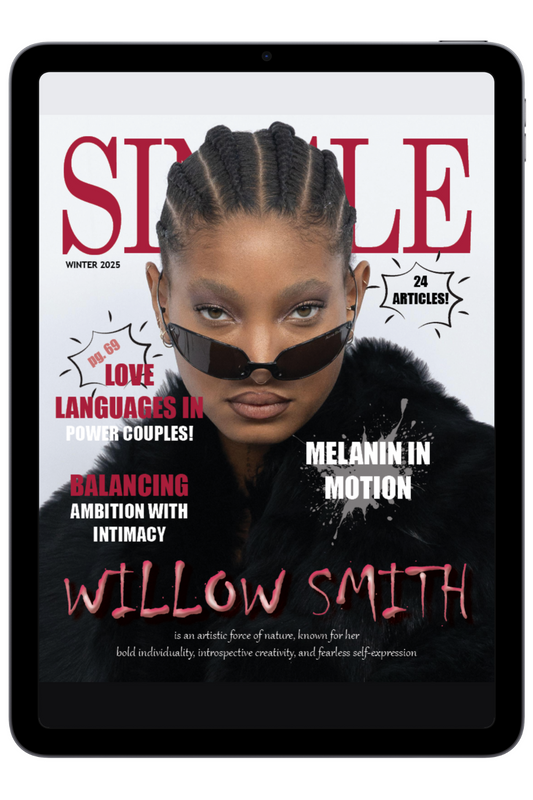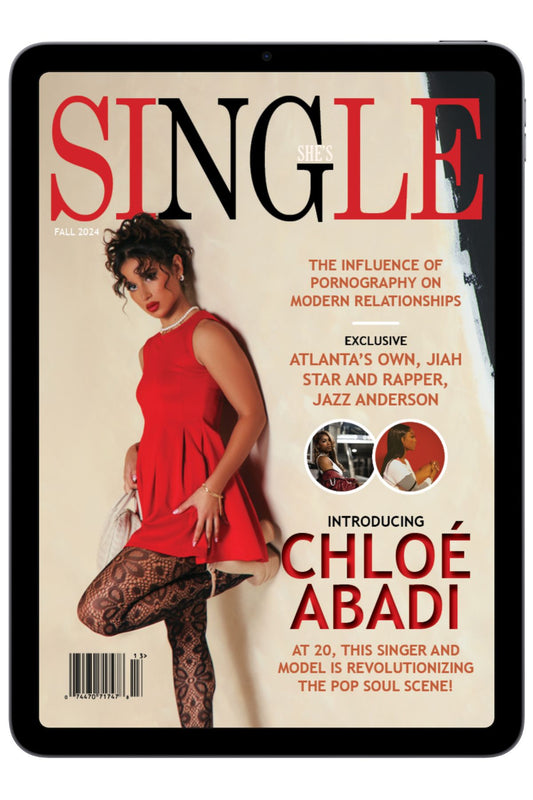Black Women and Black Cinema: The Birth of ASIAS Films

The landscape for Black women in media is changing—and rightfully so. We’ve seen many African American actresses, such as Issa Rae, Halle Berry, and Regina King, step behind the lens to deliver innovative projects centered on driving the culture forward. But outside of Tyler Perry, why isn’t there a woman of his caliber to whom other Black talent can consistently turn for work? He remains the face of Black cinema, despite the lack of diversity in his projects—serving as the sole writer, producer, and director—and the way African American women are often portrayed on screen.
“When we worked with Novi Brown for our Fall 2021 cover, she was incredibly kind. Of course, her work with Tyler Perry on Sistas came up,” author and She’s SINGLE Magazine founder Lisa K. Stephenson tells us. “She mentioned that Tyler completes scenes in one take, similar to a stage play. He doesn’t believe in reshoots or multiple takes of the same scene. But this practice has led to increased criticism of his work, often resulting in backlash and earning a reputation for being "low quality" or "low budget." However, he is known for offering a high pay rate to his talent, which can be attributed to his ability to keep costs low in other areas of his productions. Still, such tactics do come at a cost."
Related articles: Disney Removes Pregnant Halle Bailey from Oscar Consideration for 'Little Mermaid'
This leads to the ongoing conversation around the lack of quality and genre diversity—particularly in horror, thriller, or even comedy—where Black people are the central focus. Why is this still the case? “We see it all the time—movies with leads who are often white or have Eurocentric features, helping to market the film overseas,” Stephenson adds. “It’s scary for Black talent to promote films abroad, especially those without a major IP where the lead was Black from the start. Black Panther succeeded largely because the character had always been Black. But The Little Mermaid live-action film showed us that altering previously established characters doesn’t always lead to positive feedback.”
Today, actresses like Halle Berry are taking to X (formerly Twitter) to promote their work. For her horror film, she tweeted, “If you want to see more films like this with Black people, then you have to support.” Meanwhile, Sinners has broken records and continues to do so. The film not only represents Black culture with high-quality performances and a masterful script, but it also promises to be timeless and profitable. So, what does this mean for Black cinema?
Related articles: Maya Hawke Talks Social Media Stars Replacing Talent

“As an African American writer focused on stories for Black and Brown women, I feel a duty to ensure that my novels translate well not just on paper, but also on screen,” Stephenson says. “Now that ASIAS Films is fully funded through Kickstarter, we’re beginning production on our first adaptation: The Artist. It’s a love story that’s realistic, relatable, and fun. There’s no trauma or struggle love here. The characters are imperfect, but they have good intentions—which is what makes the story compelling.”
The Artist is the first book-to-film project from ASIAS Films, with a small crew set to bring it to life. “As a perfectionist, I like to research deeply and take my time,” she continues. “This chapter isn’t just a reflection of me as a Black woman, but as a creative. Breaking into this industry is hard—even with social media lowering the barrier to entry. Someone can go from posting online to dancing on tour with Shakira or Beyoncé, but make no mistake—there’s still room for exploitation. With no real gatekeepers or representation, people can be taken advantage of.”
Stephenson concludes, “I believe in karma. I don’t want to be exploited, and I won’t do that to others. We should all be fairly rewarded for our work and create our own opportunities—then send the elevator back down. Supporting Black films and talent is more than a trend—it’s how we tell corporations that our Black dollar has power. Our entertainment doesn’t have to rely solely on trauma or slave narratives to be valid or successful.”
Related articles: Ariana Grande & Cynthia Erivo Shine in the ‘Wicked’ Film Adaptation: Film Review
WHAT IS ASIAS FILMS?
ASIAS Films is an American independent entertainment company specializing in film and television production, as well as film distribution. The company is based in White Plains, NY, and was founded by American author and entrepreneur Lisa K. Stephenson.
SSM: WHAT WAS THE INSPIRATION BEHIND ASIAS FILMS?
LKS: The inspiration behind ASIAS Films was A24. Seeing the success of their company and how they retained their independent status despite their massive success was definitely the push I needed to dive into film production. On top of that, I never want to be bought out of anything. Ownership is the theme of my life as an entrepreneur and creative.
SSM: HOW DO YOU PLAN ON REACHING YOUR TARGET AUDIENCE?
LKS: I plan to meet them where they are. If that’s a love for music, they’ll find original songs in all of our films—songs performed and written by Black talent from around the world. If it’s reading, their favorite books can be adapted to film in ways that are both entertaining and high quality. I don’t intend to only adapt my own books, but also those of other writers who want to retain ownership of their work. That way, we can circulate funds within the community and strengthen our infrastructure.
Related articles: The Renaissance World Tour Fashion Book

SSM: OUTSIDE OF FUNDING, WHAT ARE SOME OTHER CHALLENGES YOU FACE AS AN UPCOMING FILMMAKER AND AUTHOR?
LKS: Signing talent onto a project. Today, it seems like there are two main avenues: (1) There are people who get spotted by an artist’s team via TikTok or Instagram, and they end up working with that artist. The artist’s tour or glam is funded by a label, so they can pay the talent a substantial amount. However, when that artist isn’t touring or performing, there’s a hiatus. During this time, those individuals expect opportunities that pay just as much—or more—from indie companies, and that’s simply not realistic.
(2) Then there are people who just don’t want to work. We often ask, “Why are the same people in films over and over again?” Well, it’s because they’re reliable. In this business, everything has a deadline—a money window, so to speak. You have a budget, you set a timeline, you get your permits, and then you proceed with the project. When people drag their feet, give lackluster auditions, and show disinterest in the part of the career that requires hard work, it becomes difficult to fill roles with the new faces people claim they want to see.
Why does Zendaya keep getting work? Maybe because she keeps an open mind and doesn’t turn things down. This business is about finding your footing and paying your dues. Not everyone wakes up and becomes the next Halle Berry or Viola Davis. You have to work on the small productions to earn your way to the larger ones. Experience is required in every field.
Related articles: Ice Cube Announces "Last Friday" in the Works, Chris Tucker Reflects on Past Decisions
Overall, the entertainment industry is evolving, and we look forward to seeing more female-led productions and Black films take center stage—showcasing fresh, original stories.
by Diamond Brown









